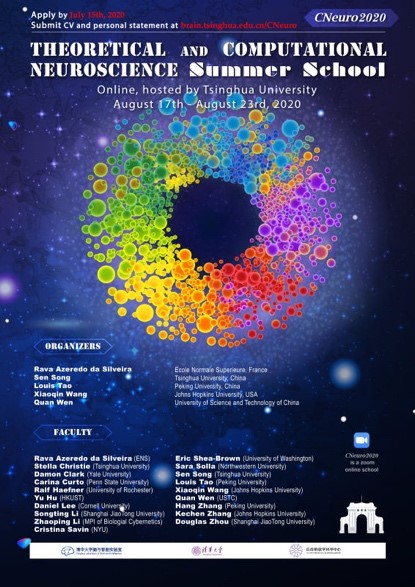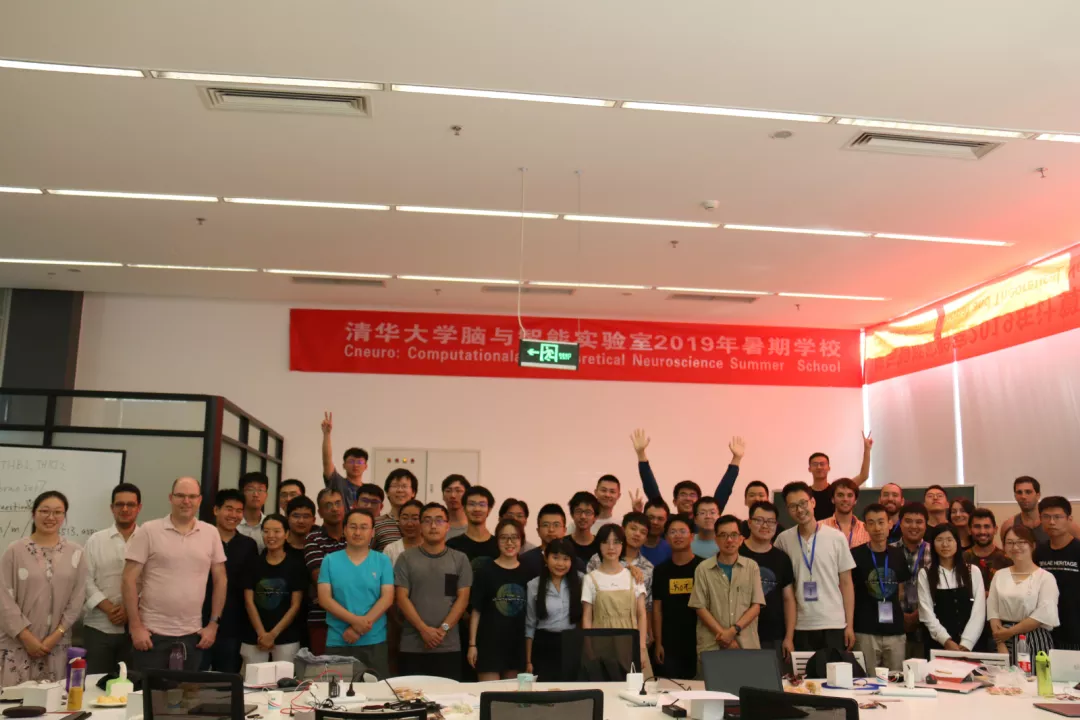Tsinghua’s summer schools are an integral part of the university’s mission to promote cross-cultural communication and global connections. They provide a valuable platform for students across the globe to greater connect with China academically and culturally and to expand their horizons.
Alongside the interdisciplinary-focused Global Summer School, Tsinghua hosts many subject-orientated summer schools that enable students to hone in on their learning and connect with professors and peers in their field. Subject-oriented summer schools held online this year include:
➢Deep Learning
Organized by Department of Computer Science and Technology
Date: June 29 – July 8, 2020
In recent years, deep learning has found tremendous applications and achieved great success in different disciplines. This summer school provides a thorough training of deep learning, from basic and general concepts to advanced and ad hoc algorithms. It features many applications in computer vision, natural language processing, knowledge graph, social media analysis, multimodal analysis and so on. To help you understand the contents, a deep learning toolbox TensorFlow are introduced in detail, on which most programming homework is based.
Program details:http://goglobal.tsinghua.edu.cn/program/p5mcyonzpGkX7
Organizer details:http://www.cs.tsinghua.edu.cn/publish/csen/index.html
➢Access Computing Summer Program (ACSP)
Organized by Global Innovation Exchange, GIX
Date: July 1 to September 20, 2020
Now more than ever, technology is capable of addressing the issues that we face both as individuals and as a society. These problems include, but are not limited to, the lack of assistive technologies for individuals with disabilities, limited access to health screening technologies, and the decline of our environment. The Access Computing Summer Program (ACSP) brings together the next generation of global talent in computer science and related fields to develop highly impactful solutions that address these grand challenges. Students in the ACSP will be able to practice a variety of human-centered design methods to develop novel sensing techniques, user-friendly interfaces, and cutting-edge computer technologies.
This summer, the Access Computing Summer Program will be held from July 1st to September 20th, 2020. We aim to recruit fourteen full-time research interns with a background in computer science, electrical engineering, industrial engineering, or some other equivalent discipline. Participants will join a well-defined applied research project in a team formed by two interns and one mentor. The sponsoring faculty will supplement the mentorship with periodic advising.
The Access Computing Summer Program will also include lectures on topics within ubiquitous computing and human-computer interaction from academic and industry speakers. The program will also include lectures/workshops on embedded hardware, signal processing, and machine learning. Furthermore, we would organize extracurricular activities such as visiting local museums, sports, etc.
Program and organizer details:http://gix.tsinghua.edu.cn/Home/index.htm
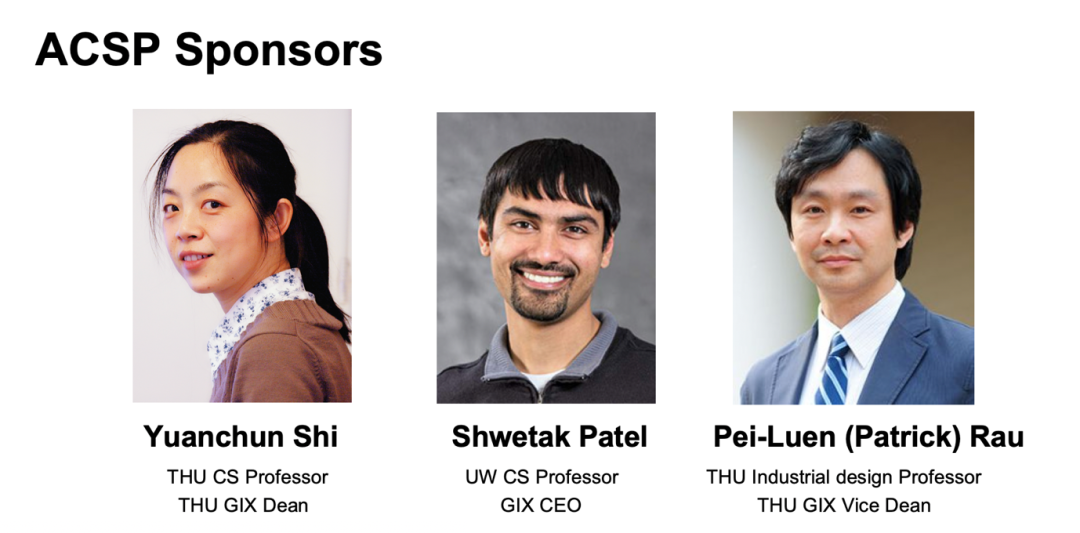

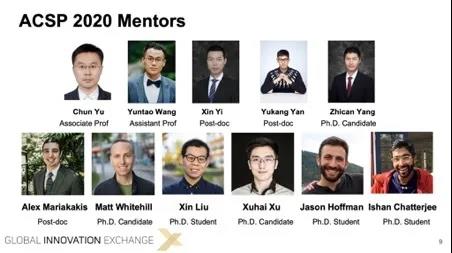
➢2020 China-Italy Lab on Advanced Manufacturing(CILAM)Summer School
Organized by Department of Electrical Engineering
Date: July 15 - 28, 2020
The China-Italy Joint Laboratory on Advanced manufacturing (CI-LAM) is one of the first initiatives among the two Countries focused on the collaboration in the field of Smart Factory and Digitalisation. Its mission is to promote and enhance the results of a joint cutting-edge research and development, including mutual technology transfer. The vision of the Joint lab is to be the most effective collaboration bridge between China and Italy in area of advanced manufacturing.
This program has been launched as an upgrading of CI-LAM Summer School launched in 2019, held in Naples from 15th to 28th July, with the participation of 22 Students from Tsinghua University, University of Naples Federico II and University of Bergamo, with 6 Laboratories, 85 hours of activities, 6 Teachers, 3 Assistant of Lab, 2 Official Social activities.
To enlarge the scope of the program, and also to successfully overcome the travel and distance limitations imposed by the global sanitary emergency of coronavirus, the 2020 CI-LAM Summer School program will be totally digitalized and transformed in an online training, innovation and matchmaking activity, open to a significantly larger target, both in terms of numbers and of categories of beneficiaries.
Program details:www.cilam.org
Organizer details: http://www.eea.tsinghua.edu.cn/eng/index.html
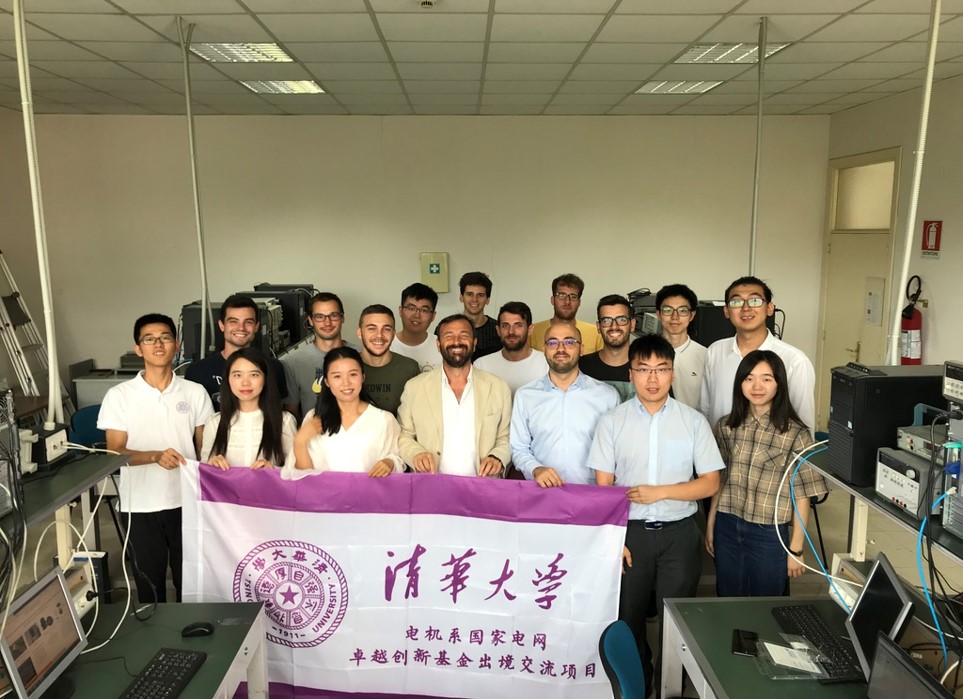
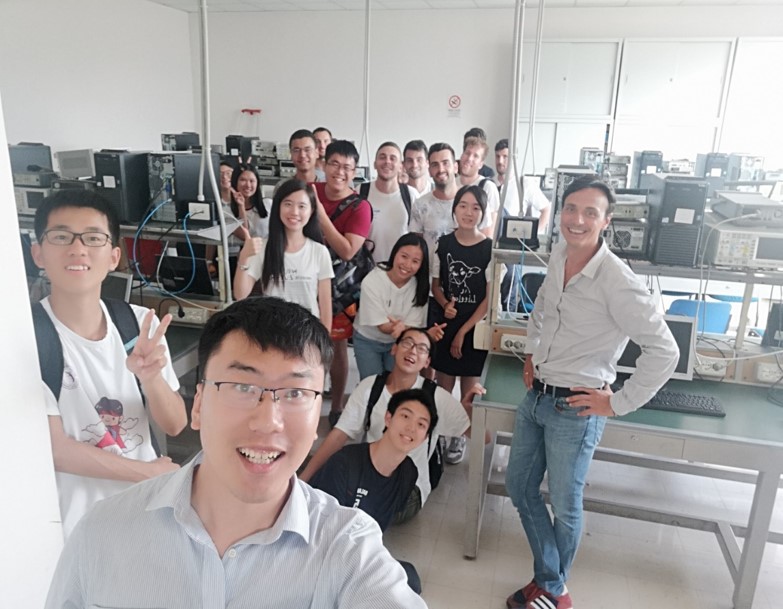
➢The World Nuclear Industry Today
Organized by Institute of Nuclear and New Energy Technology
Date: August 5 to 7, 2020
The WNU short course on “The World Nuclear Industry Today” is designed to enhance the knowledge of attendees about the status of nuclear energy in the world today and its likely development. The course also aims to inspire attendees to further their career in this exciting and expanding field. For the participants, the expected outcomes of the WNU short courses are:
· Improved knowledge about nuclear energy in the world today;
· Recognition of how local skills and experience fit into the global nuclear picture;
· Inspiration to develop an expansive vision of where the industry can go in the future;
· Networking with nuclear professionals in their countries and with international experts.
Leading world experts will present overviews of a full range of nuclear-related topics in an accessible way. Local experts present national capabilities in the nuclear area. Lecturers are encouraged to focus on key points and draw out relevant issues for further discussion.
Organizer details: http://www.inet.tsinghua.edu.cn/publish/ineten/index.html
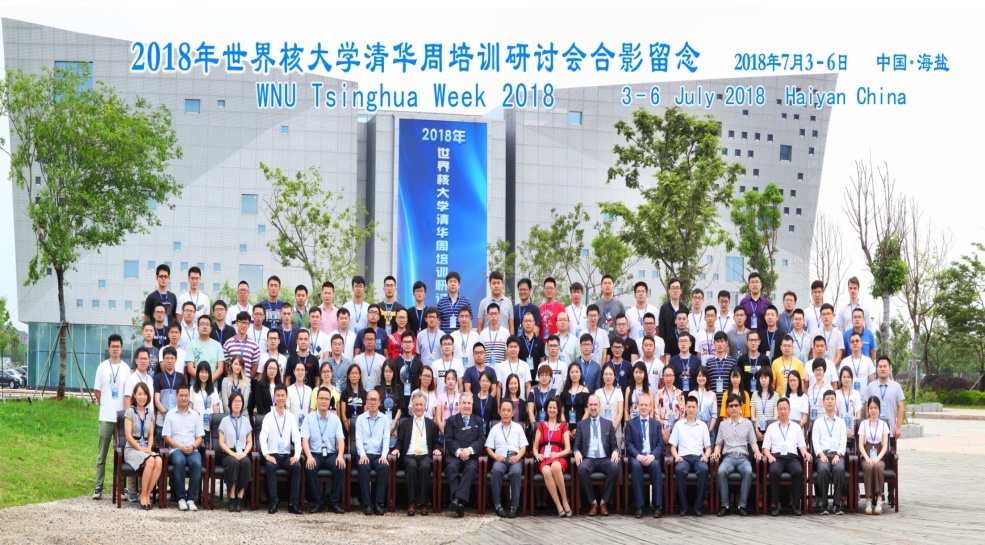
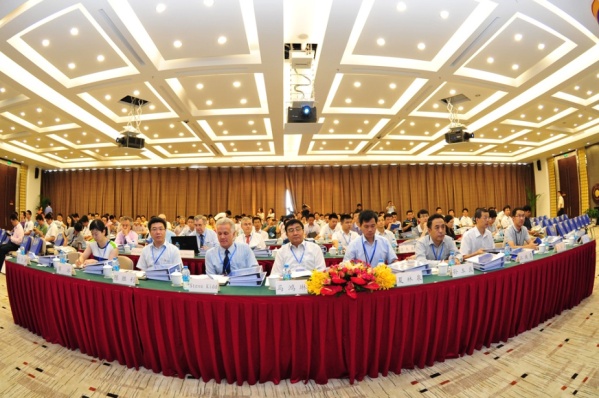
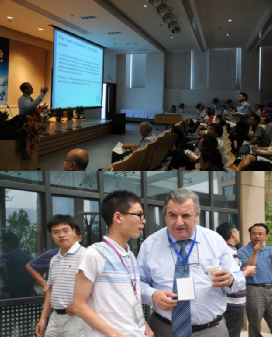
➢CNEURO 2020: Theoretical and Computational Neuroscience Summer School
Organized by Tsinghua Laboratory of Brain and Intelligence (THBI)
Date: August 17 to 23, 2020
How intelligence and behavior emerge from complex and intricate interactions within the brain remains a deep and unsolved mystery, central to an exciting area of interdisciplinary research. The past decade has seen rapid progress in experimental tools that now make it possible to monitor and manipulate brain circuits in unprecedented detail. This evolution presents challenges and opportunities for both experimentalists and theorists, as the complex algorithmics of brain function and the intricate interactions among neurons cannot be approached with experiments alone. Mathematical theory is instrumental in the emergence of theoretical insights and frameworks that can help guide experimental work and identify unifying principles of brain function.
The aim of the one-week summer school will be to introduce students with a strong quantitative background (in mathematics, physics, computer science, and engineering) to the emerging field of theoretical and computational neuroscience. The course will bring together leading scientists in the field, who will deliver lectures, take part in small-group discussions, and share their personal experience and views on a range of research topics. The distinguishing feature of CNeuro is the emphasis it places on the role of systematic mathematical theory for understanding the brain, in part by stressing the connections between neuroscience, statistics, machine learning, and artificial intelligence. The summer school will serve as a pedagogical introduction to some of the methods particularly relevant to exploring these connections. This year will be the third installment of the CNeuro summer school. We will make every effort to recruit students from a diverse background including all genders and ethnic groups.
Program and organizer details:http://brain.tsinghua.edu.cn/info/sunmer2020/692
